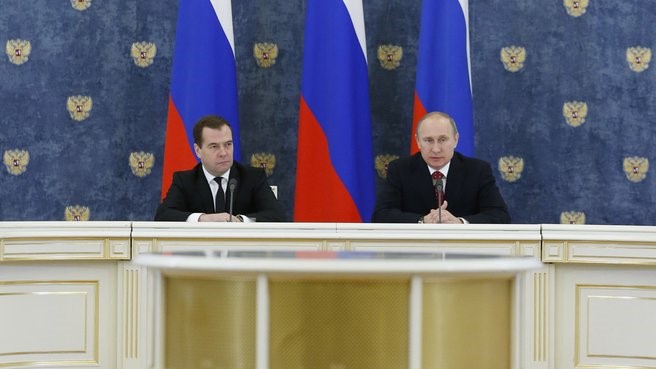Russia is adept at running public disinformation campaigns, misdirecting foreign officials, and controlling the narrative through propaganda. This week, however, the tenor in the Kremlin appears to be changing. There are a number of Russian officials and insiders with knowledge of President Vladimir Putin’s health admitting that his condition is worsening, and that he may be close to leaving office amid his failing war effort in Ukraine. Such rumors have swirled around Moscow for months, although some are believed to have been planted by the Kremlin chief himself. Russia’s poor military performance in Ukraine, coupled with Putin’s health issues purported to be from Cancer and Parkinson’s disease, provide greater validity to the notion that the country is getting closer to seeing a new leader in power. Putin has refused to acknowledge, so far, if he is running for re-election in 2024.
This week marks 11 months since Putin’s forces invaded Ukraine. He has been unsuccessful in capturing Ukraine in what was originally expected by the Kremlin to be a very short, special military operation. His efforts to divide the democratic West over its support for Kyiv have also failed. That does not mean the war will end anytime soon. Most of the potential successors of Putin’s are “all cut from the same cloth,” according to one military analyst in Washington, and “unlikely to give up the Ukraine campaign.”
In response to requests from Kyiv, this week President Biden agreed to send enough 31 M1 Abrams tanks to Ukrainian forces. That is enough to arm a battalion. The announcement comes only 24 hours after Germany made public that it intends to provide 14 German-made Leopard 2 tanks. Other allies, including Poland, are also sending Leopard tanks. Warsaw’s ultimate goal is to send Ukraine 88 tanks, enough for about two battalions. Patrick Tucker, a technology editor at the publication Defense One, says that “Combined with promised deliveries of US Bradley Fighting Vehicles and other countries’ tanks, light tanks, and other armored vehicles… Ukrainian forces will soon receive “hundreds” of armored vehicles of various types. Putin’s war, according to analysts, must be wearing him down as Ukraine’s friends in the West continue to supply the country with the materiel its needs to fight for its sovereignty. Already half of the US and Netherlands promised 90 T-72 tanks are arriving in Ukraine this week.
Help is arriving just in time as Putin is expected to make a major push in the coming weeks. The shipments are critical to Ukraine’s defense effort. Tucker points out that France announced it is sending their Amx-10 [RC] light tanks along with 40 Marders armored vehicles from Germany, and Sweden says it is sending CV 90s. “So, you’re going to see hundreds of armored vehicles, exceptionally capable vehicles, and tanks arriving in Ukraine,” according to Tucker. Analysts are certain Putin recognizes the significance of the US shipment of Abrams tanks and that it represents a long-term commitment by Washington.
The New York Post reported last week that “The 70-year-old Putin, whose health has been the subject of intense speculations for many months now, was described as “withdrawn, terse, not meeting virtually with anyone in person, and generally deeply preoccupied,” according to the Telegram channel General SVR, which is said to be run by a former Russian intelligence officer.” Not much is expected to change if he resigns from office this year or decides not to run for re-election.
There are three crucial issues to examine in 2023. Putin’s plans for running for office again in 2024 is the first. The are also two other areas of concern to Western leaders. There is a growing schism among Russian political elites, with the hawks preferring an escalation of the conflict in Ukraine. The Carnegie Endowment for Peace says this emerged as “an issue after Russia’s withdrawal from the Kharkiv region and relinquishing of the key city of Kherson, and was fueled by Ukraine’s strike on the bridge to Crimea, the referendums held on annexing occupied parts of Ukraine, and the authorities’ subsequent ambiguity on what Russia’s official borders are.” The hawks, who also support restructuring the country’s political and economic system, are opposed by a group roughly labeled as “pragmatists.” These are mid-ranked career officials and technocrats intend on rethinking the war effort and devising a more realistic approach given Russian losses and its limited military capabilities. It portends a year of internal strife in Russia as Putin intensifies his suppression of opposition voices and the pragmatists reach out to the Russian populace and non-military elites to call for an end to the war.
The third major challenge facing Russia this year concerns the reshuffling of government personnel. Although political analysts are not openly predicting who will be out in senior positions, what they are certain of is that Putin will be searching for dynamic and effective leaders. Tatiana Stanovaya, a Russian expert at the Carnegie Endowment for Peace, says that “Putin’s inclination to invite technocrats into the government may grow further, with senior figures in the cabinet, the presidential administration, and the power structures all aged and exhausted by the war and military failings forcing Putin to look for new ideas. Another is the coming presidential contest, given the historical record: reshuffles have preceded all but one of Russia’s presidential elections.” Putin enjoys hyper-secrecy and feels no need to explain his behavior. He still needs, however, to balance his leadership team for it to remain stable and innovative in a period when senior personnel are dissatisfied with each other. This year could prove a turning point for Russia, not only in its war in Ukraine, but also in Moscow as the next generation of leaders prepares to take over. It looks unlikely, however, that the forces of moderation will succeed in assuming the reins of power.
Daria Novak served in the U.S. State Dept.
Photo: Putin meets with Dmitry Medvedev and other government officials (Russian Government official site)
